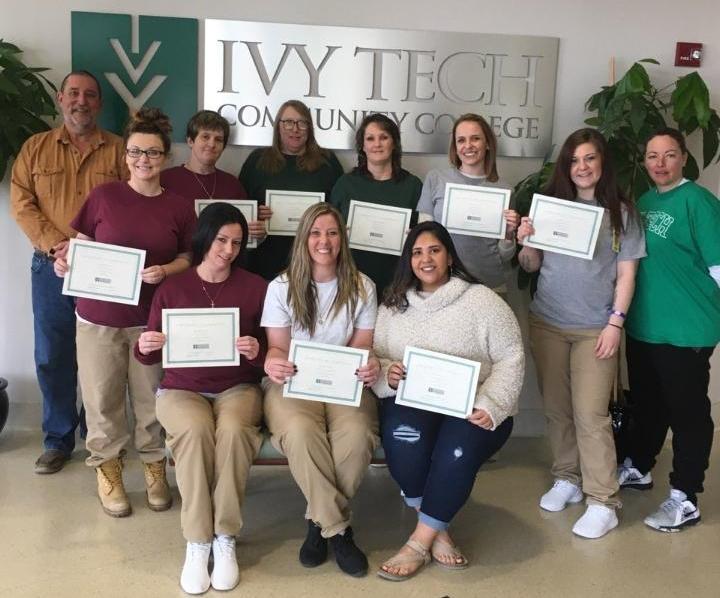Congratulations to this year's cohort of graduates from Madison Correctional!
Corrected version of last month's edition
Last year our CEO, Neil Reddy, had the honor of speaking to the graduating class at an all women's correctional facility in Madison, IN through a partnership with Ivy Tech Community College-Madison.
We would like to congratulate all of the cohorts at this facility that have earned our Certified Production Technician (CPT) certification and here is a testimonial from Instructor, Kevin Bradley, about the most recent graduating class:
"March 13, 2020 proved to be a very positive day as Cohort 7 from the Madison Correctional Facility, Madison, IN all successfully earned the MSSC Full CPT Certification. The program offered through Ivy Tech Community College-Madison is the first in the nation to be offered in a women's correctional facility. Overall class average for the full CPT certification tests was 93.45%.
Starting in 2018, Ivy Tech Community College-Madison has successfully offered and completed 7 MSSC CPT classes within the prison. Each class or cohort has 10 students for the 9 week program. Happily to report, to date 70/70 students within MCF have earned their full CPT as well as OSHA10 certification. While still incarcerated, many MSSC certificants eligible for work release have obtained employment in local manufacturing facilities. Others report that after release, the CPT Certification definitely has enhanced and helped with job searches.
These women have jumped through hoops and barrels just to get into this program. They have had to meet certain Math and Reading requirements. Besides being taught MSSC CPT they have had four principles instilled into them throughout the class. Those principles are drive, determination, ambition and perseverance and have proven to build self confidence...something that some of them have never had.
These women are more than ready to enter the manufacturing workforce and to be successful."

|